Pressure Care

This Help Sheet explains what pressure sores are and what causes them; ways people with MJD, their families and carers can prevent pressure sores; and who can help if you think someone has a pressure sore.
Doing a Blood Test – Health Professionals

This Help Sheet is designed for primary health professionals who are taking blood from a patient who wishes to know if they have Machado-Joseph Disease (MJD).
Assistive Technology
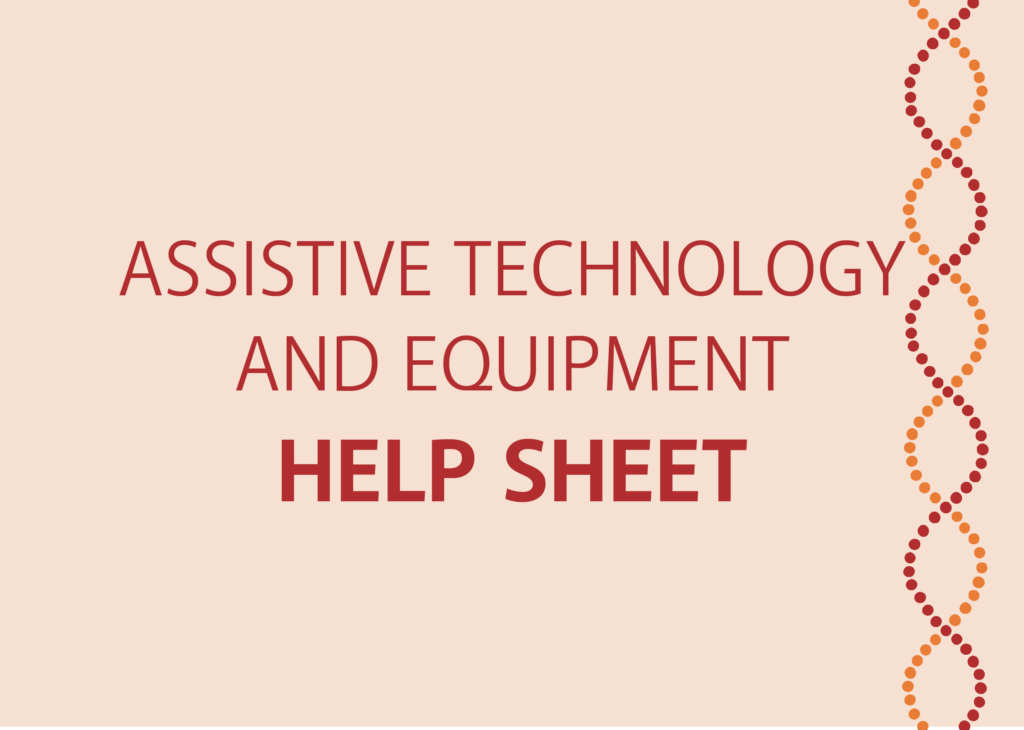
Assistive technologies, when appropriate to the user and the user’s environment, have a significant impact on the level of independence and participation which people with disabilities are able to achieve. This Help Sheet aims to present an overview of the role of Assistive Technology in enabling people with Machado-Joseph Disease (MJD) to function as independently as possible and to participate as fully as possible in their family, community and social lives.
A Palliative Approach to Care
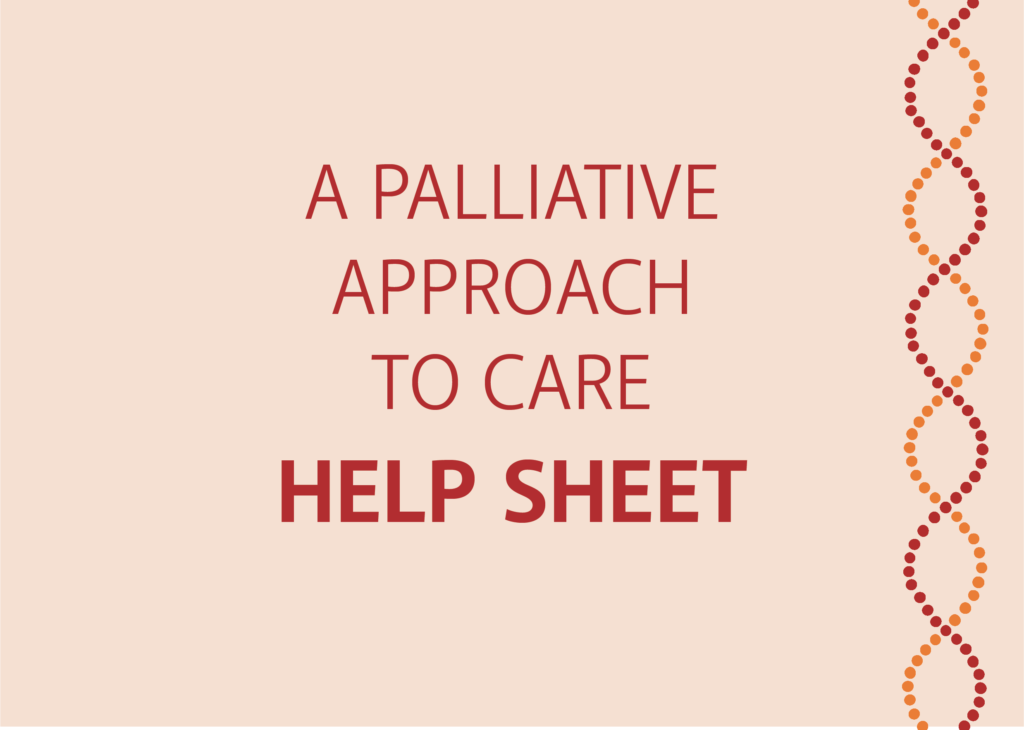
This Help Sheet aims to present the principles of ‘A Palliative Approach’ to care workers supporting people with MJD in general care settings: in the community, in respite and in residential care. It may be helpful to care staff, community workers and families as they learn effective ways to support people with MJD as a degenerative and life-limiting disease.
Nutrition

Weight loss and malnutrition are common in people with Machado-Joseph Disease (MJD). The symptoms of MJD are complex and interrelated. This Help Sheet provides general information about nutrition for people with MJD. It is important to remember that each person with MJD needs to be assessed and supported according to individual need.
Social and Emotional Wellbeing
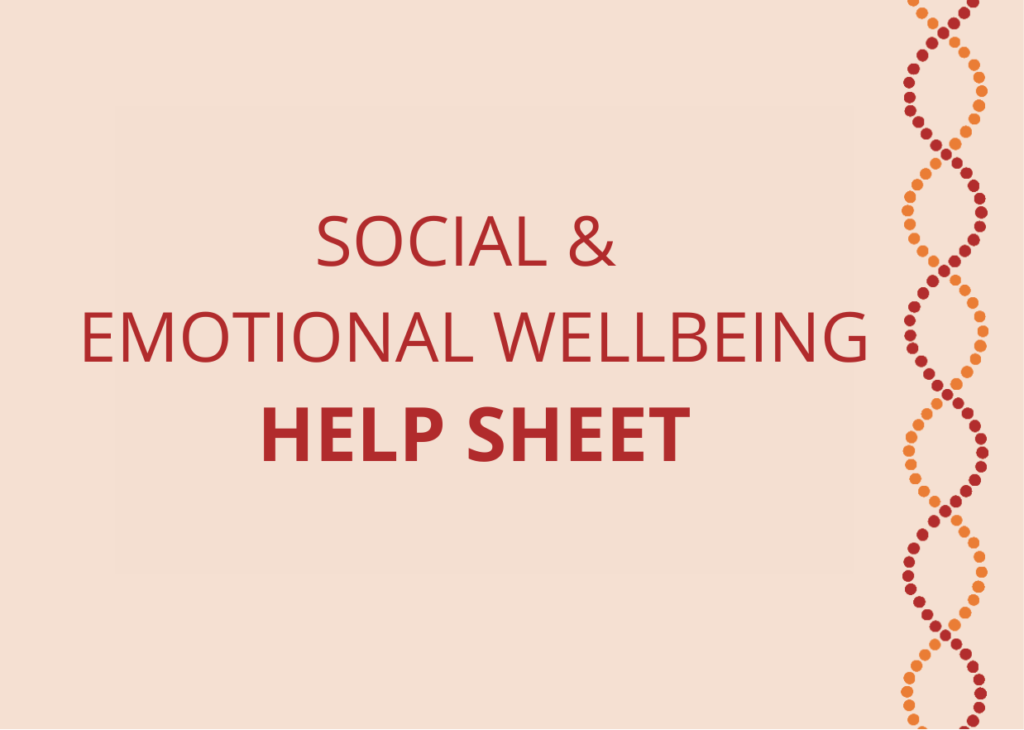
There is evidence that people with Machado-Joseph Disease (MJD) have higher rates of depression, anxiety and apathy. Depression in people with MJD may be reactive to the physical incapacities, sleep disturbances and fatigue rather than the neurological damage of the disease process.This Help Sheet explains the social and emotional impacts of MJD and provides information about appropriate social and emotional support strategies.
It’s Hard to Talk
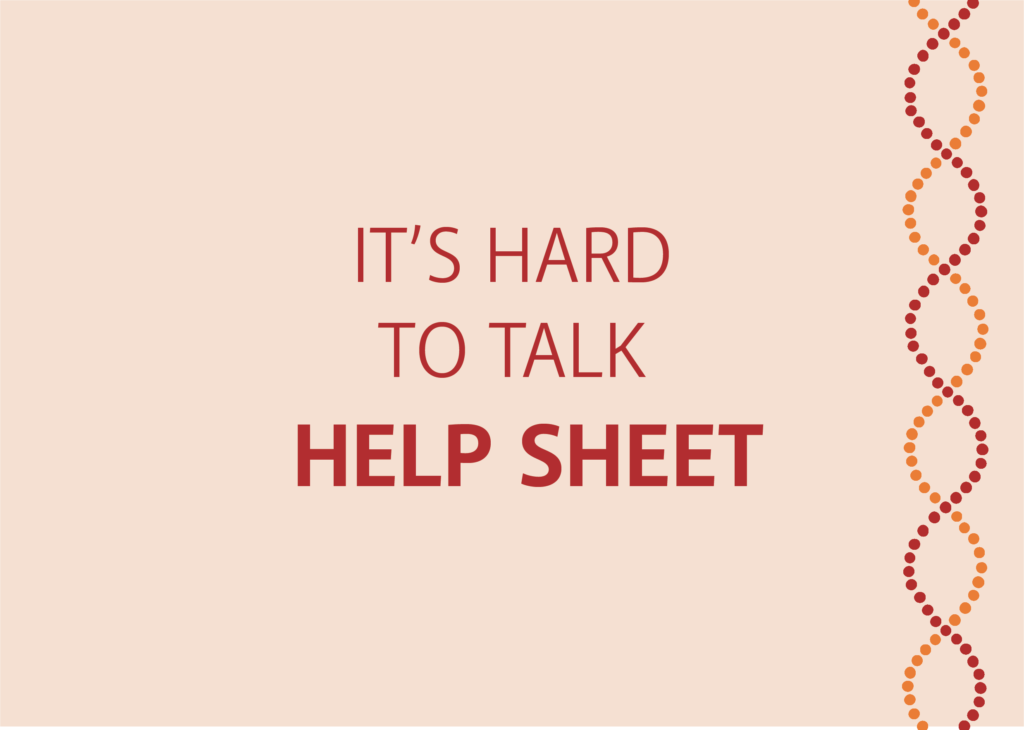
When people have Machado-Joseph Disease (MJD) they find it hard to talk. When it starts, it is just a bit slurred when they talk. But then it gets worse. This help sheet outlines some of the strengthening exercises and support tools that can support people with MJD when they start to find it hard to talk.
Communication Difficulty
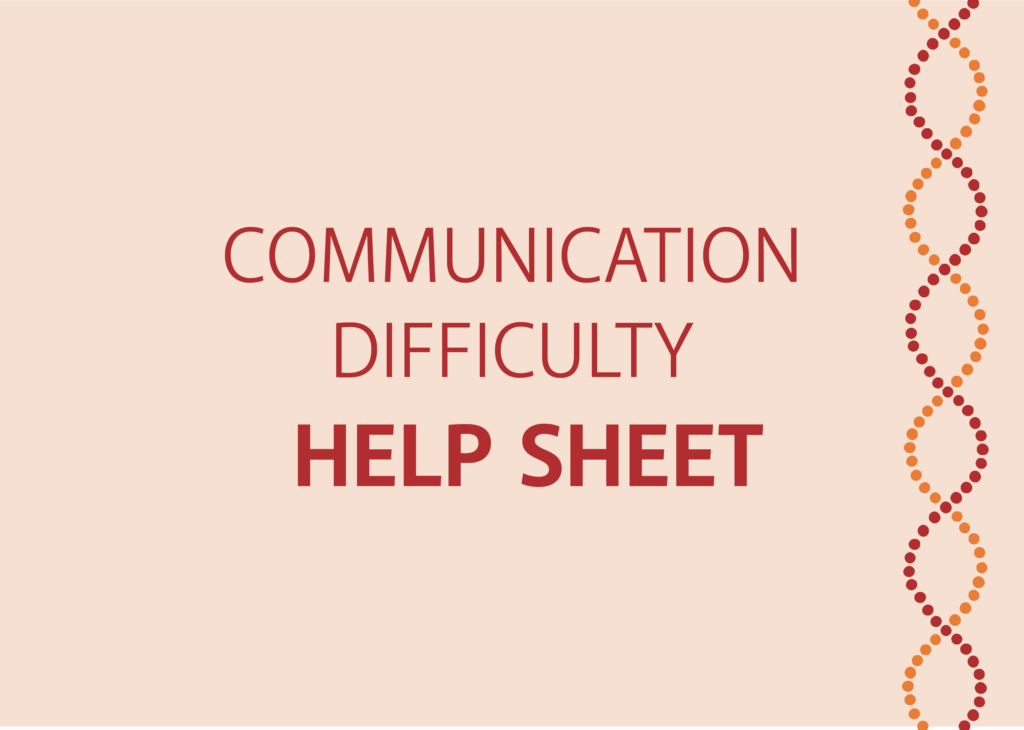
People with Machado-Joseph Disease (MJD) experience significant speech loss throughout the progression of the disease. ‘Dysarthria’, or slow, slurred speech, is often an early sign of MJD, and may progress over time to complete speech loss (Anarthria). This Help Sheet explains some of the changes in communication that occur as a result of MJD and shares ideas on ways to communicate well with someone with MJD.
Urinary Continence

Neurogenic bladder is a common feature of Machado-Joseph Disease (MJD) and describes the condition when the nerve pathways that control bladder function are impaired. This can cause issues related to overactive bladder (OAB) like urinary incontinence (UI) and retention. This Help Sheet provides general information about urinary incontinence that may be encountered by people living with MJD. It is important to remember that each person with MJD needs to be assessed and supported according to individual need.
Bowel Issues

Neurogenic bowel dysfunction (NBD) is a common feature of Machado Joseph Disease (MJD) and results in faecal incontinence, constipation or both. There are locally documented deaths of MJD clients from bowel obstructions. This Help Sheet provides general information about bowel issues that may be encountered by people living with MJD. Clients should be assessed and supported according to individual need.

